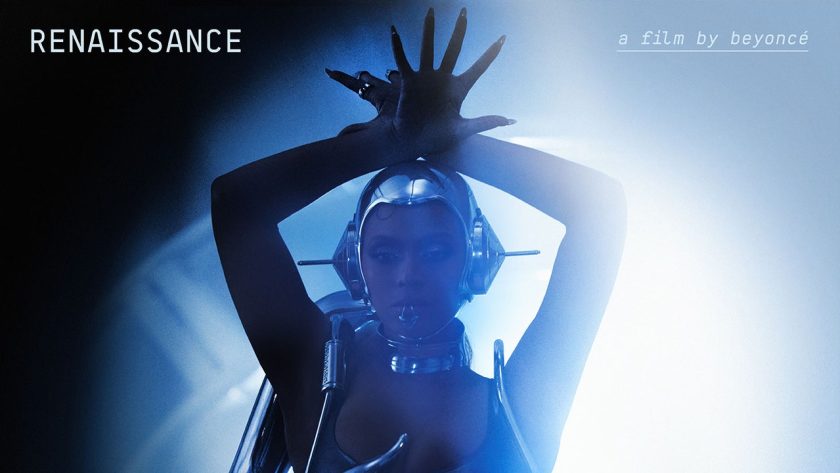There’s a moment in Renaissance: A Film by Beyoncé in which Beyoncé has an idea for the arrangement of “Cuff It.” Backstage, alongside her musical collaborators, she suggests that the track start with an a cappella rendition of the verse, followed by a punchy brass accompaniment leading into the full-bodied song. She sings out what’s in her head, and what started as the twinkle of an idea becomes a shooting star. Beyoncé is not just a singer, she’s a musician (and a dancer, a composer, a lighting designer, a wife, a mother). This is the undercurrent of the whole film, which serves as a reminder that Beyoncé is one of one—the only one.
At the London premiere on Thursday night, Beyoncé shared her gratitude with the audience before the film began. “Thank you for coming, thank you for dressing up,” the 42-year-old told a teary, excited crowd. She expressed the pride she felt as the film was released on World AIDS Day (December 1) and gave us permission to “dance, sing, cry” before taking her seat to enjoy the world she had created.
Below, the biggest takeaways from Renaissance: A Film by Beyoncé.
Blue Ivy is destined to be a star
“You can’t cut those songs!” Blue Ivy exclaims in the film, as Beyoncé deliberates over whether to lose “Diva” from a setlist that is already running long. Of course, the crowd gasped with her at the possibility of one of her mother’s most iconic songs not being included.
We also learn that Blue Ivy’s viral stage performances during “My Power” and “Black Parade” on the tour were supposed to be a one-off, and that even then, Beyoncé wasn’t too keen on the idea. “She told me she was ready to perform, I said no,” Beyoncé explains in the film. The superstar said that the trials and tribulations she’d faced coming up in the industry ultimately prepared her for the stage, along with fame and everything that comes with it (both positive and negative). Blue Ivy, she said, had not had that same exposure. Sure enough, after the first performance, the 11-year-old was subjected to a deluge of criticism and harsh comments online from people who thought her dancing was lackluster. But in true Knowles-Carter fashion, Blue used the negativity as motivation to train harder and come back stronger.
It’s a love letter to Black and queer musical pioneers
Kevin JZ Prodigy is the legendary queer ballroom musician who narrates the show, and whom Beyoncé calls the “heartbeat” of Renaissance. The “Opulence” chapter of the film shows heartwarming archival footage of Prodigy ballrooms, charting the birth of his unique sound (and that of his fellow pioneers), plus footage of Prodigy and Knowles hugging and rehearsing.



